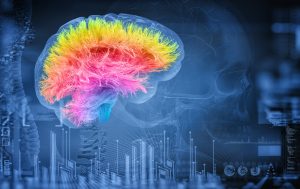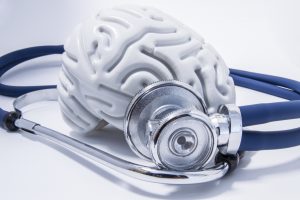
By fizkes at Shutterstock
A brain injury is typically associated with severe head trauma, however, an acquired brain injury (ABI) is actually the cause for close to one million brain injury cases each year. Acquired brain injuries differ from a traumatic brain injury or degenerative brain injuries in that there is another condition or injury that leads to the brain injury, such as a stroke or lack of oxygen to the brain. But, just like with a traumatic brain injury, acquired brain injuries require the survivors to relearn completing daily tasks and basically how to live.
Unfortunately, those with the greatest risk factors of an acquired brain injury are geriatric adults. Here are some of the most common causes of acquired brain injuries in the elderly and why it is critical that they receive the care need to reduce the risk.
Stroke
Strokes are cardiovascular events that result in the blood supply to the brain being temporarily cut off. In many situations, a stroke is caused by a blood clot, which causes narrowing of the artery or vein. The clot may also travel to an area that restricts blood flow to the brain.
Although poor heart health is one of the most significant causes of a stroke, anyone can have a stroke. The elderly are especially at risk. One common occurrence that increases the risk factors for geriatric adults is a transient ischemic attack (TIA), which also known as a mini-stroke. TIAs may occur multiple times, producing temporary blockages that quickly resolve.
Geriatric adults often neglect to seek care when a TIA occurs because the issue is resolved, so they associate the discomfort with something less serious; however, TIA increases the risk of a stroke, and brain damage can occur as a result of TIA.
Brain Hemorrhage
A hemorrhage is bleeding in the brain, which is generally caused by another problem, such as a fall, a sudden blow to the head, or possibly a brain infection. Geriatric adults may hit their head in a minor fall but discount the possibility of a more severe injury simply because the fall wasn’t “serious.”
However, bleeding on the brain may range from mild to life-threatening, and it may temporarily impede their brain function. As the bleeding spreads to other areas of their brain, it deprives the brain of oxygen, which may lead to permanent damage.
Loss of Oxygen to the Brain
Something as simple as geriatric adults choking on their medications may lead to oxygen deprivation to the brain. Though lasting, severe brain damage requires about four minutes of oxygen deprivation, the risk factors of minor brain damage may begin as soon as one minute into the deprivation of oxygen.
The risk factors for oxygen deprivation for geriatric adults are high, especially if they are alone. Loss of oxygen to the brain in the elderly may occur from a variety of causes, such as an allergic reaction that leads to anaphylactic shock, drowning from a fall in the bath, a stroke, or choking.
Know the Warning Signs of ABI
An acquired brain injury may cause a wide variety of mild to severe symptoms. In many cases, the cause of the acquired brain injury is apparent, and the symptoms will typically begin shortly after the initial injury. However, when geriatric adults are alone and suffer an event that leads to an acquired brain injury, the outcome may be fatal. It is essential that care be available for geriatric adults as frequently as possible to reduce the risk of a situation occurring that may lead to an acquired brain injury.
Join TryMunity Following an ABI
If you or someone you love is living with an ABI, join the community at TryMunity. Here, you’ll find a national network of TBI and ABI survivors, caretakers, friends, and family members. Learn more and join at community.trymunity.com.





 When someone you love suffers a traumatic brain injury, it can be difficult to understand what they need from you during their recovery and after. To help you understand your role in their life, both practically and emotionally, here are a few things you should know:
When someone you love suffers a traumatic brain injury, it can be difficult to understand what they need from you during their recovery and after. To help you understand your role in their life, both practically and emotionally, here are a few things you should know:  Do you know what an acquired brain injury (ABI) is? Many people know what a TBI is, but not an ABI. And, most people aren’t aware of the differences between the two. In truth, these are both complex, wide-ranging injuries. Here at TryMunity, we’ve decided it would be helpful to describe, in depth, what an acquired brain injury is. We’ve provided a definitions of acquired brain injuries below, as well as their key characteristics. Check it out below!
Do you know what an acquired brain injury (ABI) is? Many people know what a TBI is, but not an ABI. And, most people aren’t aware of the differences between the two. In truth, these are both complex, wide-ranging injuries. Here at TryMunity, we’ve decided it would be helpful to describe, in depth, what an acquired brain injury is. We’ve provided a definitions of acquired brain injuries below, as well as their key characteristics. Check it out below!
